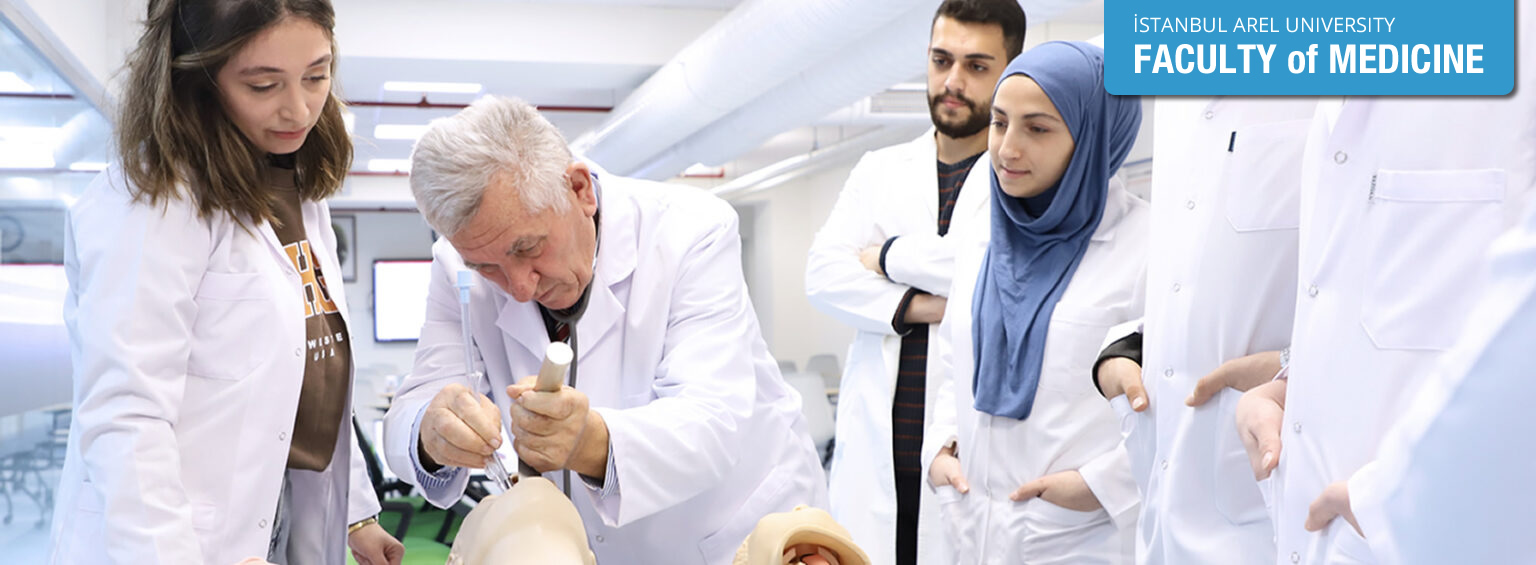Department of Child Health and Diseases
FACULTIES
MEDICINE

It provides children with preventive healthcare on the growth and development of healthy children from the neonatal period and also it contributes to diagnosis, treatment and monitoring of children diseases with the support of evidence-based scientific data; furthermore, it contributes to child care training of parents.When it is deemed necessary, the most accurate approach is provided about diagnosing, treating and monitoring childhood diseases, through consulting patients by minor specialists.
Minor specializations in the scope of the Department of Child Health and Diseases are Neonatal, Pediatric Infectious Diseases, Pediatric Cardiologists, Pediatric Neurology, Pediatric Hematology-Oncology, Pediatric Nephrology, Allergyies in Children, Pediatric Endocrinology, Children’s Rheumatology, Pediatric Chest Diseases, Genetic Disorders in Children and Child Psychiatry
Department of Pediatric Cardiology
It provides services in the diagnosis and treatment of congenital or acquired heart diseases that manifest themselves with some complaints or examination findings in childhood.
Children who have serious congenital heart defect (such as hole in the heart, cardiac valve failure-insufficiency, structural abnormalities) usually complain about frequent breathing, sucking, fatigue, sweating, weight gain, or bruising (especially of the lips, tongue, gums, and nail beds) within the first 6 months after birth. Symptoms in some congenital heart diseases with age (such as often breathing, palpitations, fatigue, squatting when you’re tired, bruising, weight gain, frequent lung infections, edema) are distinguishable or suspected during the examination even if there is not any noticable or explicit evident.
Acquired heart diseases (such as rheumatic fever, myocarditis, Kawasaki disease) also show complaints and signs of examination at the rates at which they affect the heart.
Complaints such as dizziness, fainting, and chest pain associated with or unrelated to exercise can be caused by irregularities in the heartbeat (rhythm disturbances).
During the examination by the pediatrician, the most common reason for suspecting heart disease is the hearing of murmurs. More than half of childhood murmurs are innocent murmurs. But without any other important signs, a diagnosis of congenital or acquired heart disease can be made only as a result of research due to murmur.
Congenital heart diseases can be detected during pregnancy. For this reason, ‘fetal echocardiographic evaluation’ can be performed with the recommendation of the obstetrician-gynecologist who follows risky pregnancies (such as diabetes-heart disease pregnant, advanced pregnancy, miscarriage-stillbirth history, IVF).
In routine cardiac evaluation; history taking, examination, electrocardiography (shows the rhythm of the heart and its contractile power) and echocardiography are sufficient. A rhythm Holter (24-hour ECG) and an effort test may be required if there is a suspicion of an exercise-related or unrelated rhythm disorder. In cases where echocardiographic evaluation is not sufficient, cardiac catheterization and angiography can be performed for both diagnostic and therapeutic purposes (such as closing a hole or removing valve stenosis).



